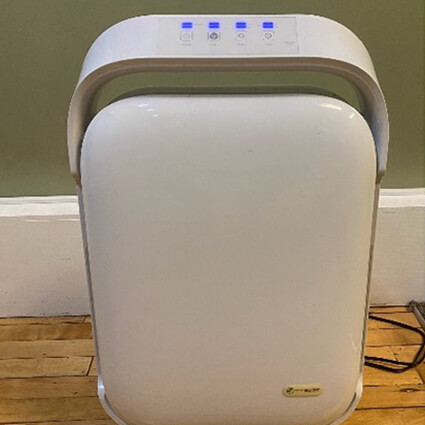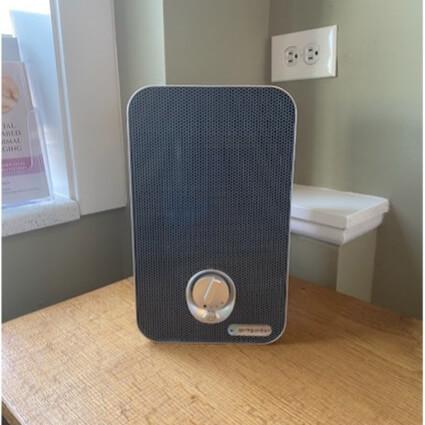Happy Tuesday! 👋 Dr. Kelly here. How dirty is your air?
The quality of the air we breathe has become a growing concern due to increasing pollution levels, industrial emissions, and the prevalence of allergens.
I want you Breathing Easy!! 🌬
Learn the Importance of Air Purifiers.


Indoor air quality, in particular, is a significant issue as people spend a substantial amount of time indoors, whether at home, work, or school.
New spray foam has insulated your house. It has made your home so energy efficient that the indoor quality can be too tight and not good. 💀
Air purifiers have emerged as a crucial tool in combating poor air quality, providing numerous benefits that enhance health and overall well-being.
Air purifiers are devices designed to remove contaminants from the air within a room. 😁
They typically use filters, such as HEPA (High-Efficiency Particulate Air) filters, activated carbon, or UV light technology, to capture particles like dust, pollen, mold spores, pet dander, and even bacteria and viruses. 🌞
Advanced models may also eliminate volatile organic compounds (VOCs) and odors, further improving indoor air quality.
I have used the Germ Guardian’s air purifier for the past 4 years. 👊
The one I have in the office has several filtration techniques.
- Carbon filter to get the big particles. Like: odors from smoke, cooking, pets, VOC’s from chemicals
- HEPA filter for allergens.
- UV-C light kills airborne bacteria, viruses and MOLD SORES
- Ionizer. Helps to attract particles to the unit.
Health Benefits sited:
1. Reduction of Allergens: Allergens such as pollen, pet dander, and dust mites are common triggers for allergies and asthma. Air purifiers can significantly reduce the concentration of these allergens, providing relief for individuals with respiratory conditions. By filtering out these particles, air purifiers help minimize symptoms such as sneezing, coughing, and shortness of breath, leading to a better quality of life.
2. Elimination of Harmful Particles: Fine particulate matter (PM2.5) from vehicle emissions, industrial processes, and household activities can penetrate deep into the lungs and enter the bloodstream, posing serious health risks. Long-term exposure to PM2.5 is linked to respiratory and cardiovascular diseases. Air purifiers equipped with HEPA filters can capture these microscopic particles, reducing the risk of developing such conditions.
3. Prevention of Mold Growth: Mold spores thrive in humid environments and can cause respiratory problems and allergic reactions. Air purifiers help control indoor humidity levels and capture mold spores, preventing them from settling and growing. This is particularly important in damp areas like basements and bathrooms.
4. Improvement of Sleep Quality: Clean air is essential for a good night’s sleep. Air purifiers can reduce airborne irritants that may disrupt sleep, such as dust, pollen, and odors. Improved air quality can lead to deeper, more restful sleep, which is vital for overall health and well-being.
5. Odor Removal: Air purifiers with activated carbon filters are effective at removing odors from cooking, pets, smoke, and other sources. This leads to a fresher and more pleasant indoor environment, enhancing comfort and quality of life.
6. Reduction of Indoor Pollution: Household products like paints, cleaners, and building materials can release VOCs, which contribute to indoor air pollution. Prolonged exposure to VOCs can lead to headaches, dizziness, and other health issues. Air purifiers can absorb these compounds, creating a safer living space.
7. Enhanced Mental Clarity and Productivity: Poor air quality can lead to symptoms such as headaches, fatigue, and difficulty concentrating. By improving indoor air quality, air purifiers can help boost cognitive function and productivity, making them beneficial for home offices and workplaces.
